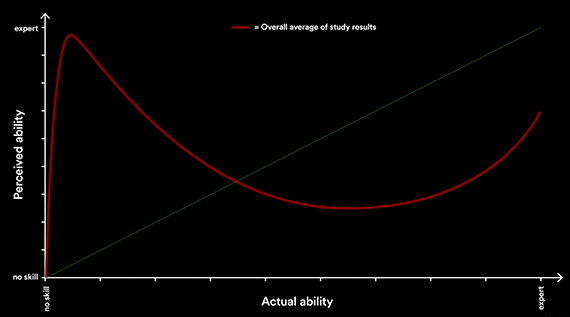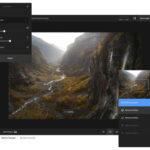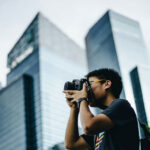Have you noticed that beginners are apt to overestimate their skills, while experienced professionals are more likely to underestimate their true abilities? Believe it or not, there’s a name for this phenomena: the Dunning-Kruger Effect. Photographers are by no means immune to this cognitive bias. If you don’t believe it, just go back and look at some of your old work; chances are, you’ll come across a shot or two that will make you scratch your head and question what you were thinking at the time.
There’s no need to be embarrassed. We’re all a bit prone to falling into this particular psychological trap. But how do you avoid falling prey to the Dunning-Kruger Effect? Photographer Jamie Windsor offers a few pointers to help us recognize our flaws and grow:
- Beware of feeling comfortable. Don’t always stick to what you know. Never stop challenging yourself and pushing yourself toward something new. You may not always be happy with the results you get while experimenting. You may fail at meeting your goals. However, progress isn’t possible if you aren’t willing to move.
- Let go of old work. Everyone has a few shots that they’re immensely proud of. However, there’s always room for improvement. Try to identify what could be better in your old favorite images, then try to get out there and improve upon them. Better yet, make an effort to progress beyond your old work and add on new branches entirely.
- Seek out feedback. Receiving critique isn’t always easy, but the opinions of others are valuable tools in moving forward. Try to listen objectively and not take constructive criticism too personally. It’s easy to pay attention to compliments and likes, but make the effort to seek out the honest truth about your work.
- Always keep learning. The minute you think you know everything, you begin to move backward. Photography is always changing, equipment is constantly advancing, and it’s important to keep up with what’s happening around you. Study the work of others, especially those who make work that’s entirely different from your own. Doing so will help you better understand the language of photography.
- Recognize that you’re moving forward. Don’t beat yourself up over the mistakes you made in the past. Seeing those mistakes is the greatest sign that you’ve evolved as an image maker.

Dunning-Kruger Effect
Understanding your skill level as a photographer is extremely important. Having a realistic viewpoint of your abilities will help you understand your professional limitations and how much you should charge for your services. In addition, having an understanding of where you stand provides a guide of where you need to focus your efforts in the future in order to become a better photographer. Don’t let yourself fall victim to the Dunning-Kruger Effect; take the time to evaluate yourself and continue to push yourself to new heights.
Like This Article?
Don't Miss The Next One!
Join over 100,000 photographers of all experience levels who receive our free photography tips and articles to stay current:






Interesting graphic… So, you’ll never be as good as you thought you were at the beginning…